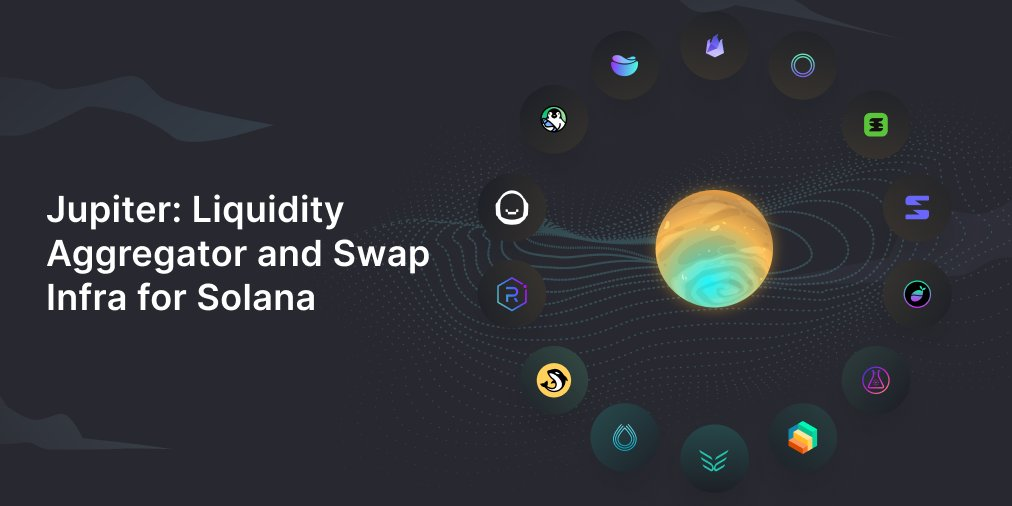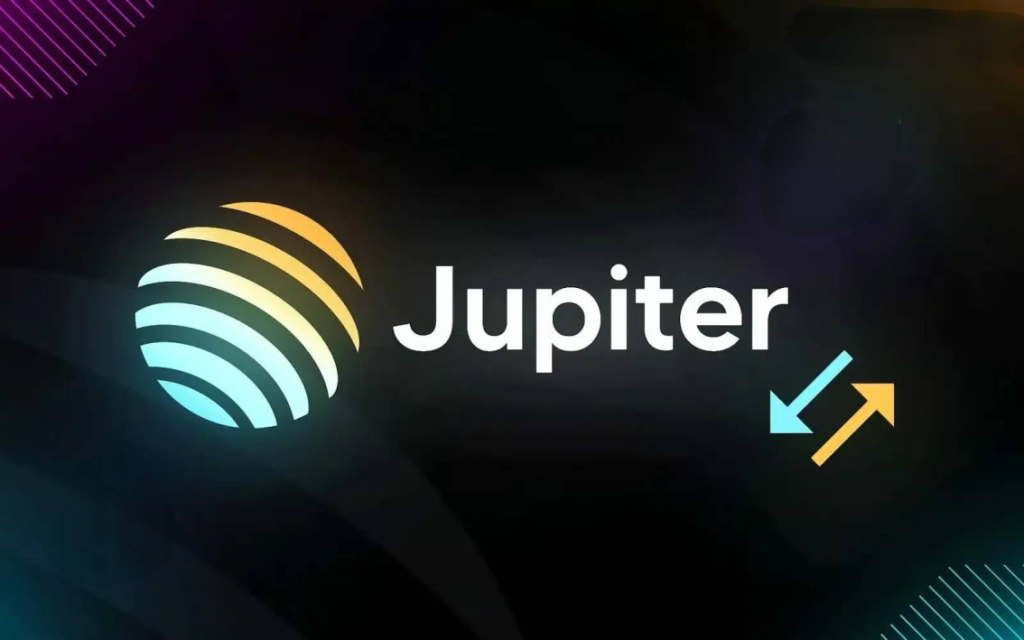How Jupiter JUP Became the Most Important Project on Solana: Evolution and Influence
Jupiter JUP has become the cornerstone of the Solana DeFi ecosystem by addressing critical inefficiencies, such as high slippage and fragmented liquidity. This article explores how Jupiter’s innovative features, strategic milestones, and community engagement turned it into “how Jupiter JUP became the most important project on Solana.”

Key Takeaways
- Jupiter launched as the first on-chain swap aggregator for Solana, addressing inefficiencies in liquidity and slippage within the DeFi ecosystem.
- The platform provides advanced trading features, including optimal liquidity aggregation, perpetuals trading, and a user-friendly mobile app, making it a leading choice for Solana traders.
- With the JUP token facilitating governance and community engagement, Jupiter’s significant airdrops and partnerships have contributed to its dominance in handling 65% of Solana’s total trading volume.
The Genesis of Jupiter
The story of Jupiter began in October 2021, when it was introduced as the first on-chain swap aggregator for Solana. Before Jupiter, the Solana DeFi scene was riddled with inefficiencies, high slippage, and liquidity fragmentation, making it difficult for users to execute trades effectively. Unlike platforms that rely on centralized exchanges (CEXs), Jupiter aggregates liquidity from multiple decentralized exchanges (DEXs), providing users with better swap prices and a fully decentralized trading experience. The initial experiment of Jupiter was met with an overwhelmingly positive response from users, signaling a significant demand for such a solution.
As Jupiter evolved from an initial experiment into a full-fledged product, it became a compass for navigating Solana DeFi. The Jupiter project addressed the critical issues of the Solana DeFi ecosystem, minimizing slippage and enhancing transaction speed by utilizing liquidity from various decentralized exchanges. This marked the beginning of a new era for Solana, where users could trade with confidence and efficiency, thanks to Jupiter work. To further enhance this journey, developers aimed to create jupiter.
Revolutionizing Solana’s DeFi Ecosystem
Jupiter has revolutionized Solana’s DeFi ecosystem by functioning as a decentralized exchange dex aggregator on the Solana blockchain, optimizing trade rates by sourcing liquidity from various platforms. Aggregating liquidity from multiple decentralized exchanges (solana dex), Jupiter Exchange has solved the fragmented liquidity issue in the DeFi space, providing users with optimal trade execution.
Jupiter’s spot aggregator has become the leading choice for trading volumes within the Solana DeFi space. By calculating multi-hop routes, Jupiter optimizes trade execution, providing the best final price in one transaction. Recent initiatives, such as reducing the unstaking period for its token to enhance liquidity, demonstrate Jupiter’s commitment to simplifying user engagement and expanding its functionality, making it a prominent dex aggregator in the market.
Key Features Making Jupiter Stand Out
Jupiter stands out in the Solana DeFi ecosystem due to its innovative features designed to enhance user experience and optimize trading within the solana community. From liquidity aggregation to advanced trading options and a user-friendly mobile app, Jupiter offers a comprehensive DeFi superapp that caters to diverse financial needs.
Here are the key features in more detail.
Liquidity Aggregation
One of the primary features that set Jupiter apart is its ability to aggregate liquidity for the best swap prices. Scanning liquidity across more than 29 platforms and identifying the best trading routes, Jupiter aggregates liquidity to guarantee optimal swap rates and low slippage for its users. This liquidity provision capability, providing liquidity, addresses the critical issue of fragmented liquidity in the DeFi space, including multiple pools, making Jupiter an indispensable tool for liquidity providers and traders.
Jupiter’s innovative searchlight function highlights the best trading routes and executes trades with minimal slippage. When necessary, Jupiter splits trades to achieve optimal outcomes, using a combination of advanced off-chain computing and Solana’s unique architecture to enhance its trading capabilities.
Advanced Trading Options
Jupiter supports a range of advanced trading options that cater to both novice and experienced traders. One of the standout features is perpetuals trading futures with up to 100x leverage, allowing a trader to speculate significantly on market movements. Additionally, Jupiter supports limit orders, enabling users to specify the prices at which they wish to buy or sell tokens, a feature particularly rare among Automated Market Maker (AMM) exchanges.
The platform also facilitates dollar cost averaging (DCA), which allows users to automatically purchase a fixed amount of a token at regular intervals. This strategy helps mitigate volatility by averaging the purchase price over time, making it an essential tool for long-term investing investors looking to navigate the often tumultuous crypto market efficiently.
Jupiter Mobile App
The Jupiter mobile app is designed to simplify the onboarding process for new users, making it easier for them to navigate the complex world of DeFi. The app supports various payment methods, including:
- Apple Pay
- PayPal
- Credit/debit cards
- Google Pay These features make the Jupiter platform accessible to a broader audience, enhancing its user base and engagement.
Jupiter has also announced partnerships, including a SOL-based debit card with Sanctum, to enhance the user experience further. These collaborations reflect Jupiter’s commitment to integrating traditional financial services with the DeFi ecosystem, offering users a comprehensive financial platform that bridges the gap between conventional and decentralized finance.
The Role of JUP Token in Governance and Beyond
The JUP token plays a crucial role in the Jupiter ecosystem, enabling holders to participate in governance and influence the platform’s direction. Key ecosystem initiatives are driven by token holders and active community participation, allowing users to be directly involved in important projects and decision-making within the ecosystem. The Jupiter team also plays a pivotal role in guiding governance and strategic initiatives, ensuring the continued growth and transparency of the platform.
This section explores how the JUP token empowers the community and fosters engagement through its governance model and community initiatives.
Governance Token
The JUP token is central to Jupiter’s decentralized governance model, allowing holders to vote on critical proposals and developments within the ecosystem. The Jupiter DAO, a decentralized autonomous organization (DAO), serves as the main decision-making body, guiding community-driven initiatives and fostering stakeholder engagement through transparent voting processes. Co-founded by a pseudonymous individual known as ‘Meow,’ the project emphasizes a commitment to decentralized governance. The JUP airdrop, which took place on January 31, 2024, was a key event that launched the DAO and distributed tokens to the community, marking a significant milestone in the ecosystem.
JUP token holders actively participate in community-driven initiatives, influencing the direction of the protocol and voting on projects to be launched on the LFG Launchpad. Here’s a deep dive into the tokenomics: the total supply of JUP is capped at 10 billion tokens, with strategic planning around distribution to ensure long-term sustainability and community alignment. The fully diluted valuation (FDV) of the JUP token reflects the market potential if all tokens are issued, impacting investor perception and the DAO’s ability to return capital through mechanisms like buybacks. The primary source of the JUP token’s value lies in its governance rights, and future fee-sharing implementations by the DAO could significantly increase its appeal.
Community Engagement
Community engagement is a cornerstone of the Jupiter platform, with significant efforts made to involve and reward community members. Key highlights include:
- The inaugural Jupuary event distributed 1 billion JUP tokens to over 1 million wallets.
- This event marked a significant milestone in community engagement.
- Community wallet distributions have fostered strong participation.
- These efforts have created a sense of ownership among users.
Community members can earn rewards through participation in events, staking, and other engagement mechanisms, further incentivizing active involvement.
With 50% of the JUP token total supply allocated for community distribution, Jupiter ensures that its users are actively involved in the ecosystem. These initiatives have helped build a robust community around Jupiter, enhancing its overall effectiveness and evolution.
Technical Innovations Driving Jupiter’s Success
Jupiter’s success is underpinned by its technical innovations. From a smart routing engine to robust security measures, these innovations have ensured that Jupiter continues to remain at the forefront of the DeFi space.
Here are more details about these innovations.
Smart Routing Engine
Jupiter’s smart routing engine is a critical component of its platform, evaluating multiple trading paths to ensure optimal pricing for users during token swaps. Using advanced off-chain computing and Solana’s unique architecture, the smart routing engine identifies the best trading routes and executes trades with minimal slippage, leveraging the swap engine for enhanced efficiency.
The platform employs multi-hop routing to enhance efficiency, enabling users to achieve better pricing through sequential trades on the trading platform. This decentralized architecture not only enhances speed and reliability but also ensures that users get the best prices trade execution.
Security Measures
Security is paramount in the DeFi space, and Jupiter employs multi-layered security protocols to protect user data and transaction integrity. Regular smart contract audits contribute to the robust security framework, ensuring the integrity of transactions and building trust among users.
Jupiter’s system also allows for dynamic liquidity rerouting in case of issues with any linked decentralized exchange, further enhancing user security. These measures ensure that Jupiter remains a reliable and secure platform for all its users.
Milestones and Major Achievements
Jupiter has achieved significant milestones that have cemented its position as a leader in the DeFi space. From major airdrops to strategic partnerships, these achievements have played a crucial role in Jupiter’s growth and success.
Here are the milestones in detail.
Significant Airdrops and DAO Formation
One of the most notable milestones in Jupiter’s journey was the massive retroactive airdrop that rewarded nearly one million early users. This event, along with the official launch of the Jupiter DAO and the distribution of 1 billion JUP tokens, marked a significant step in community governance and engagement.
The formation of the Jupiter DAO has made it one of the most influential decentralized autonomous organizations in the crypto space, allowing JUP token holders to participate actively in governance and decision-making processes within the ecosystem.
Partnerships and Integrations
Jupiter’s strategic partnerships and integrations have significantly enhanced its service offerings and user experience. Collaborations with various projects, including the development of a SOL-based debit card, reflect Jupiter’s commitment to integrating traditional financial services with the DeFi ecosystem.
The integration with Uniswap, enabling Solana users to trade over 1 million SOL-based tokens through Uniswap’s interface, showcases Jupiter’s goal of expanding the DeFi ecosystem on the Solana platform. These partnerships have broadened Jupiter’s reach and utility, inviting more users into its ecosystem.
The Impact of Jupiter on Solana’s Growth
Jupiter has played a pivotal role in Solana’s growth, handling approximately 65% of the total trading volume on Solana’s decentralized exchanges. Since its launch, Jupiter has processed over $1 trillion in volume through its platform, marking a significant achievement in Solana’s decentralized trading space.
The diverse service offerings of Jupiter help mitigate risks associated with reliance on a singular business model, thereby enhancing the ecosystem’s resilience. This has not only strengthened the Solana DeFi ecosystem but also contributed to its overall growth and success.
Future Prospects for Jupiter and JUP Holders
The future prospects for Jupiter and JUP holders are promising. Recent quarterly revenues indicate that Jupiter is among the top profit-generating projects in the crypto world market. The reduction of its total token supply by 30% to enhance value for current token holders demonstrates Jupiter’s commitment to improving its economic model.
Projections suggest that by 2030, the JUP token could reach a token price range of $6.50 to $8.00, reflecting its anticipated growth alongside the Solana ecosystem. Continuous technological innovations, such as the Ultra V3 upgrade, aim to enhance trading efficiency and user experience, further solidifying Jupiter’s position in the DeFi space.
Summary
Jupiter’s journey from an experimental project to a cornerstone of Solana’s DeFi ecosystem is a testament to its innovative approach and community-centric model. By addressing liquidity fragmentation, optimizing trade execution, and engaging the community through governance and participation, Jupiter has set a new standard in the DeFi space.
As we look to the future, the continued growth and technological advancements of Jupiter promise to bring even greater value to the Solana ecosystem and its users. The commitment to innovation and community engagement ensures that Jupiter will remain a key player in the ever-evolving world of decentralized finance.
Frequently Asked Questions
Is Jupiter under Solana?
Yes, Jupiter operates as a decentralized exchange aggregator built on the Solana blockchain, providing an optimized trading experience for users. It is currently the leading protocol on Solana, with significant total value locked.
What is the best project on Solana?
The best projects on Solana include Phantom Wallet for self-custody, Orca as a decentralized exchange, and Magic Eden for NFTs. Each of these platforms offers unique features that make them stand out in the ecosystem.
What is the JUP token used for?
The JUP token is used for governance within the Jupiter ecosystem, enabling holders to participate in decision-making by voting on important proposals and developments.
How does Jupiter aggregate liquidity?
Jupiter aggregates liquidity by scanning over 29 platforms to find the best trading routes, which ensures optimal swap rates and minimal slippage for users. This method effectively enhances trading efficiency and user experience.
What are some advanced trading options provided by Jupiter?
Jupiter offers advanced trading options including perpetual futures with up to 100x leverage, limit orders, and dollar cost averaging to help manage market volatility effectively.









